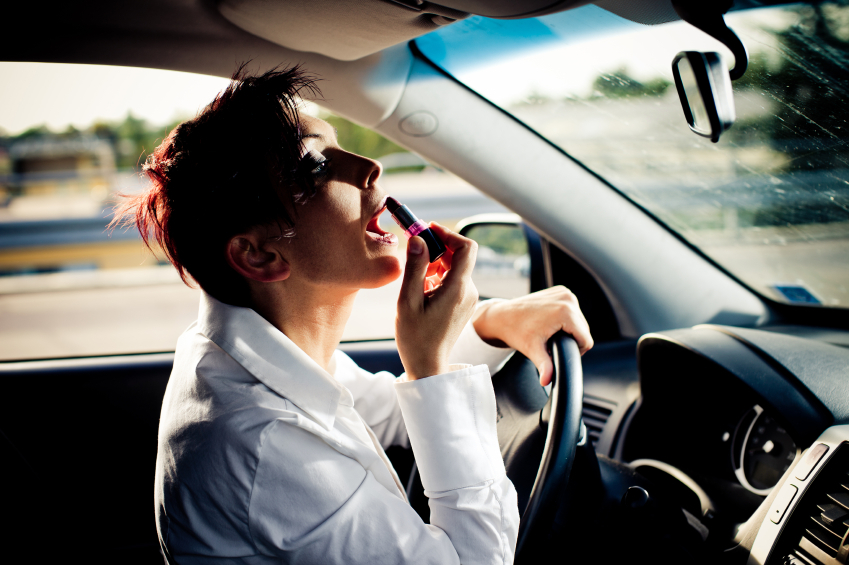
April is the National Distracted Driving Awareness month in the U.S. Perhaps we should encourage that here in Australia
as well, because distracted drivers are dangerous and in the States responsible
for over 3,300 deaths and over 400,000 injuries.
Young people are often blamed for much of the
distracted driving behaviour, using their cell phones etc., but they have
perhaps been targeted a little unfairly as it seems that we grown ups are just
as bad.
Researchers from the University of Michigan
have reported that parents are often distracted while driving their kids aged
between one and 12 and these drivers are more likely to be involved in motor
vehicle accidents. The findings come from questionnaires used in the
emergency rooms at the local children’s hospitals.
Distracted behaviours included talking on a
cell phone either hands free or handheld, texting or surfing the internet, self
care such as grooming and eating, child care such as picking up a toy, getting
directions from a sat nav or map and changing a CD or DVD.
Below is a collation of their findings.
- Almost 90 percent of drivers reported
engaging in at least one technology-based distraction while driving their
child in the past month, and most drivers reported engaging in four of the
10 distractions asked about in the study. - Drivers who reported engaging in
distracting behaviours were more likely to report having ever been in a
crash. - Drivers of children who were not
restrained in an age-appropriate restraint based on Michigan law (car seat
for children ages 1-3, car seat or booster seat for those 4-7 years old,
booster seat or seat belt for 8- to 12-year-olds) had 2.5 times higher
odds of reporting a child-related distraction than drivers of children who
were restrained in accordance with Michigan law.
The researchers were concerned that
distracted driving with children is common and that many children were not
using the right safety seat for their size.
One wonders what the findings would be for
Australian drivers with children. Possibly little different. So what can be
done to highlight the potential dangers of distracted driving?Texting while
driving is well known to be a complete no-no because of the increased risk of
having a motor vehicle crash. But the information is not being heeded. Over 43%
of teenagers admit to texting regularly while driving. Is this because they are
simply of the belief that “it won’t happen to me?” Threats of demerit
point and fines appear to have little if any impact.
Perhaps we will ultimately have to resort to technology
that will be able to detect distracted driving behaviour and immobilise our cars. Whatever the
solution turns out to be, it will hopefully come sooner rather than later for
all our sakes.
Ref:
American
Academy of Pediatrics (2013, May 6). Many parents multi-task while driving
kids. ScienceDaily. Retrieved May 7,
2013, from http://www.sciencedaily.com /releases/2013/05

